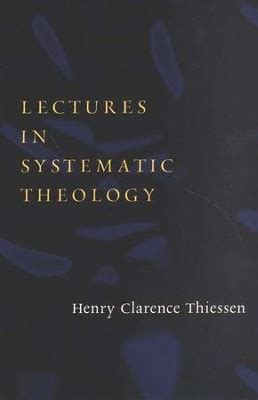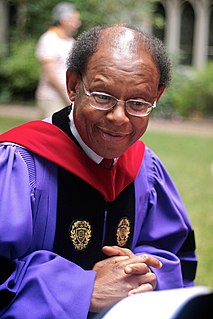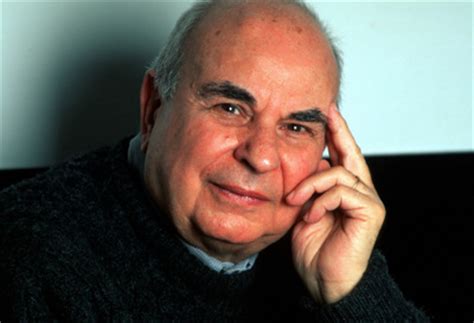A Quote by D. A. Carson
It's better to emphasize biblical theology, partly because there are fine Study Bibles already available that lean into systematic theology, and partly because biblical theology is particularly strong at helping readers see how the Bible hangs together in its own categories: that is, God in his infinite wisdom chose to give us his Word in the 66 canonical books, with all of their variations in theme, emphasis, vocabulary, literary form, and distinctive contributions across time.
Quote Topics
Related Quotes
"Biblical theology" refers to something more precise than theology that is faithful to the Bible. It might be helpful to draw a contrast: at the risk of oversimplification, systematic theology tends to organize theology topically and with an eye cast on its contemporary relevance, while biblical theology tends to organize the same biblical material so that it is easier to see the distinctive contribution of each biblical book and human author, and to trace the trajectories of themes across the Bible so we see how the books of the Bible hold together.
Theology is a non-subject. I'm not saying that professors of theology are non-professors. They do interesting things, like study biblical history, biblical literature. But theology, the study of gods, the study of what gods do, presupposes that gods exist. The only kind of theology that I take account of are those theological arguments that actually argue for the existence of God.
Systematic theology will ask questions like "What are the attributes of God? What is sin? What does the cross achieve?" Biblical theology tends to ask questions such as "What is the theology of the prophecy of Isaiah? What do we learn from John's Gospel? How does the theme of the temple work itself out across the entire Bible?" Both approaches are legitimate; both are important. They are mutually complementary.
I do not believe that God intended the study of theology to be dry and boring. Theology is the study of God and all his works! Theology is meant to be LIVED and PRAYED and SUNG! All of the great doctrinal writings of the Bible (such as Paul's epistle to the Romans) are full of praise to God and personal application to life.
The Bible is to the theologian what nature is to the scientist, a body of unorganized, or only partly organized facts. God has not seen fit to write the Bible in the form of a systematic theology; it remains for us, therefore, to gather together the scattered facts and to build them up into a logical system.
Some fundamentalists go so far as to reject psychology as a disciplined study, which is unfortunate and polarizing. By definition, psychology is the study of the soul, theology is the study of God. Generally speaking, systematic theology is a study of all the essential doctrines of faith, and that would include the study of our souls (psychology).
There is however difference between the theology of liberation and traditional theology, the latter being based primarily On the Word of God made incarnate in the Holy Scripture Liberation theology is of course also inspired by the Word, but its representatives are convinced that God also speaks to us in everyday events and that, for example, information obtained through the mass media can be a special way in which God speaks to us.
In every system of theology, therefore, there is a chapter De libero arbitrio. This is a question which every theologian finds in his path, and which he must dispose of; and on the manner in which it is determined depends his theology, and of course his religion, so far as his theology is to him a truth and reality
The ultimate goal of theology isn't knowledge, but worship. If our learning and knowledge of God do not lead to the joyful praise of God, we have failed. We learn only that we might laud, which is to say that theology without doxology is idolatry. The only theology worth studying is a theology that can be sung!
Theology is not a private subject for theologians only. Nor is it a private subject for professors. Fortunately, there have always been pastors who have understood more about theology than most professors. Nor is theology a private subject of study for pastors. Fortunately, there have repeatedly been congregation members, and often whole congregations, who have pursued theology energetically while their pastors were theological infants or barbarians. Theology is a matter for the Church.
Often, when I want to read something that is satisfying to me as theology, what I actually read is string theory, or something like that - popularizations, inevitably, of scientific cosmologies - because their description of the scale of things and the intrinsic, astonishing character of reality coincides very beautifully with the most ambitious theology. It is thinking at that scale, and it is thinking that is invested with meaning in a humanly evocative form. That's theology.




































